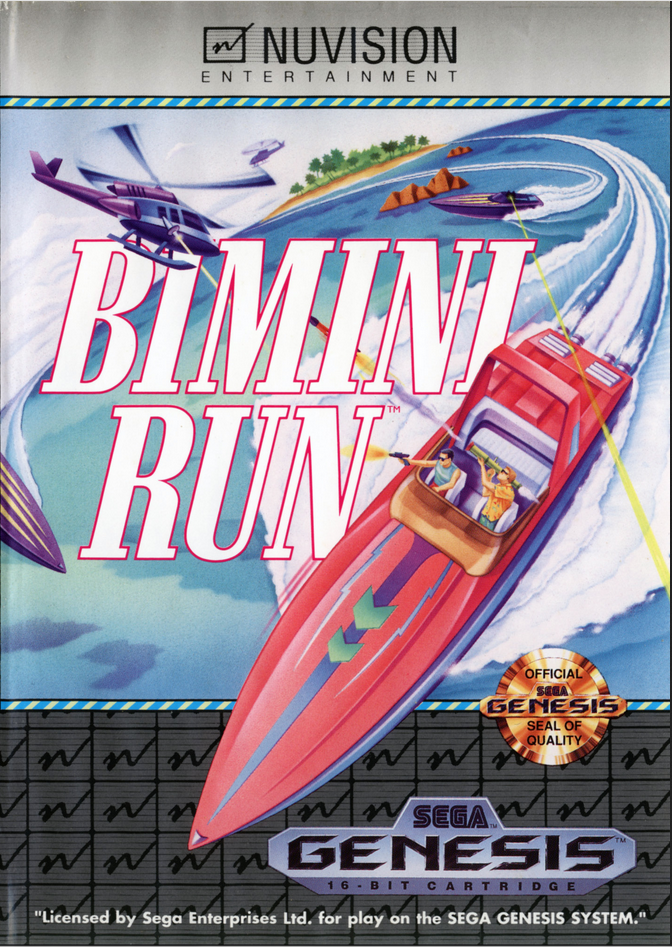
PUBLISHER: Nuvision Entertainment
DEVELOPER: Microsmiths
RELEASE DATE: 02/1991 (US)
JAPAN AND EUROPE: Never got to sample this game’s wares.
Far be it from me to criticize random video game titles, but… Bimini Run? Really? According to yourdictionary.com, a bimini is “a lightweight cover, usually made of fabric stretched on a metal frame which is readily removable, for the cockpit or deck of a speedboat or sailboat.” Also, the bimini boat cover is named after the Bimini islands, a place reputed to have healing powers by one Ponce de Leon. Did you know what a “bimini” was prior to reading this article? Unless you’re reading this from the deck of your own sail/speedboat, I imagine not. Now Bikini Run: there’s a name that makes about as much sense and would have appealed to Bimini Run‘s presumably young male demographic.
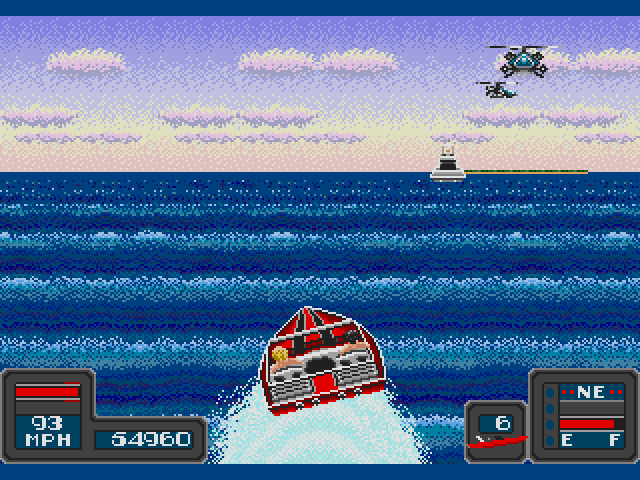
The backstory of the bimini is only slightly more interesting than Bimini Run‘s own inspired madness. You play Kenji O’Hara (Japanese-Irish?), a “wealthy self-made adventurer” who, according to the manual, likes fast cars, fast boats, and fast women, and not necessarily in that order (Bimini Run, page 2). His mission is to stop Dr. Orca, an evil mastermind who’s kidnapped his sister Kim (not Kimji? Missed opportunity, game) and seeks to destroy the world with his BAM (Behavior Altering Modules) technology. I recommend clicking on the link and reading the full one-page story synopsis yourself, it is masterful.
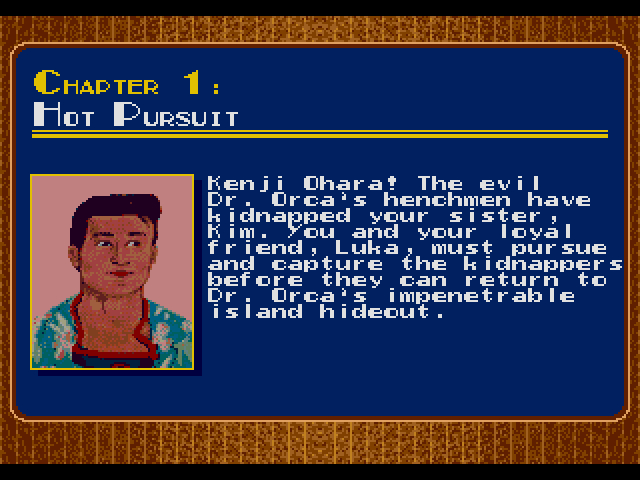
Bimini Run starts with Kenji and his friend Luka – topless and suntanned, of course – chasing Dr. Orca’s henchmen. The behind-the-boat perspective recalls Sega arcade classics Space Harrier and OutRun, and I wouldn’t be surprised if developer Microsmiths was trying to fool players into believing Bimini Run is somehow related to those (it does have “Run” in the title, after all).
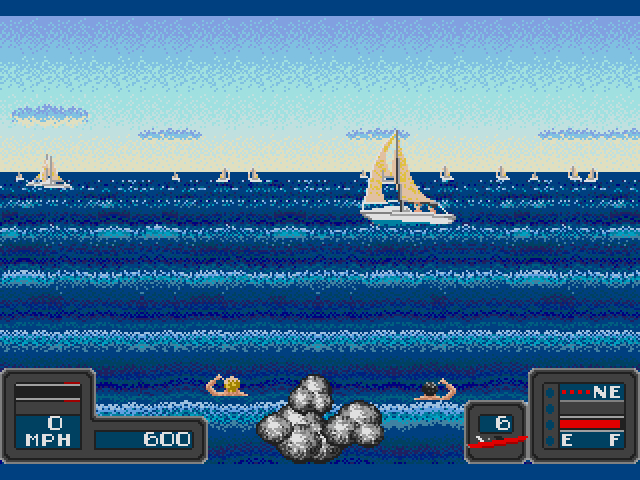
Kenji’s boat controls well. Your three attacks – bazooka, low fire, and high fire mapped to buttons A, B, and C respectively – automatically fire on any oncoming enemies, like other speedboats or helicopters. The voice sample saying “Kenji! Come in!” sounds crisp and clear. The graphics are a little scratchy looking, but the game captures the feel of being out on the ocean in the middle of nowhere. Initially, at least, the game’s quality is surprising.
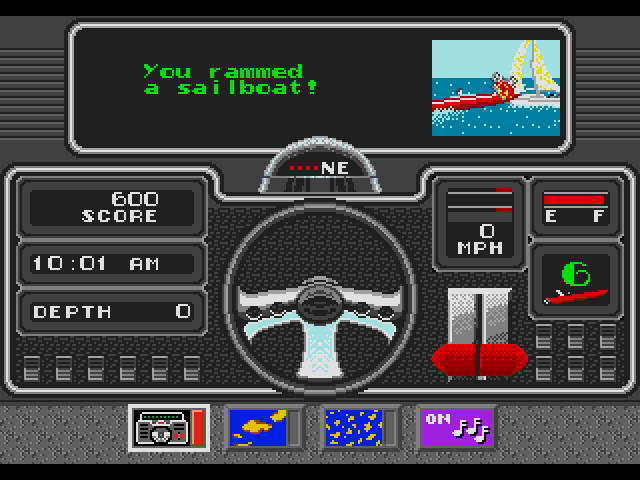
As I venture deeper into the game’s murky waters, however, mind-numbing patterns emerge. In the first level, I chase Dr. Orca’s henchmen down until I catch them. In the second level, I shoot down a bunch of radio towers. In the third level, I chase down Dr. Orca himself until we reach his hideout. In the fourth level, I shoot down more radio towers. In the fifth level, I follow a mermaid (!) through a foggy area and, by the sixth and final level – you guessed it – I shoot down even more guard towers before finally destroying Dr. Orca’s lab.
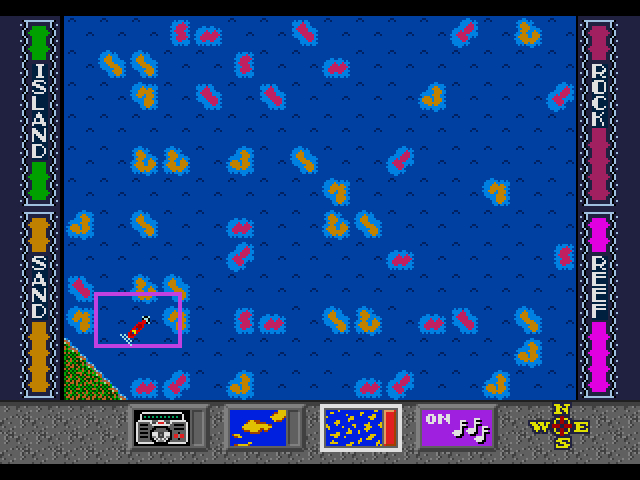
Bimini Run‘s levels all use the same recycled assets in slightly different order. An island there, a tower here, a bunch of randomly generated enemy sailboats that shoot gobs of bullets at you. Chasing the mermaid through a surreal sea of mythical creatures was a nice shift from the game’s otherwise real-world settings, but even it features the same basic shoot-and-dodge gameplay as the other levels.
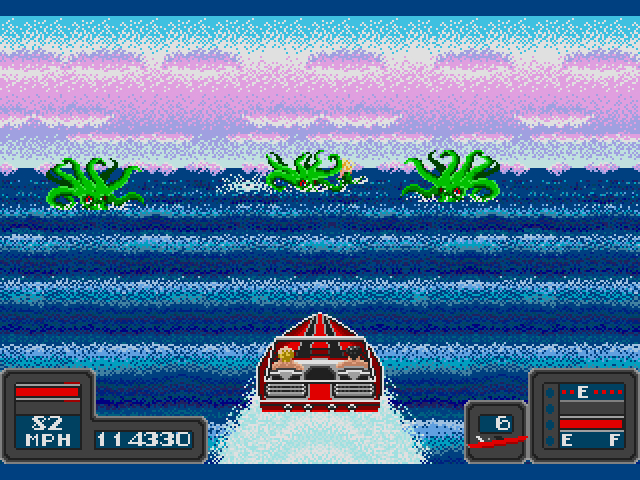
A bizarre positive: the music sounds tangentially related to Cheetahmen II, of all games. Have a listen:
Obviously, the Genesis Yamaha chip does wonders for Bimini Run‘s limited melodies, but the compositions are similar. Cheetahmen II was supposed to be released in 1992, a year after Bimini Run, but it was never released to the public. Perhaps the composer was inspired by Bimini Run‘s soundtrack? Perhaps – gasp upon gasps! – both soundtracks were composed by the same person?! If anyone has any leads, please let me know in the comments below.
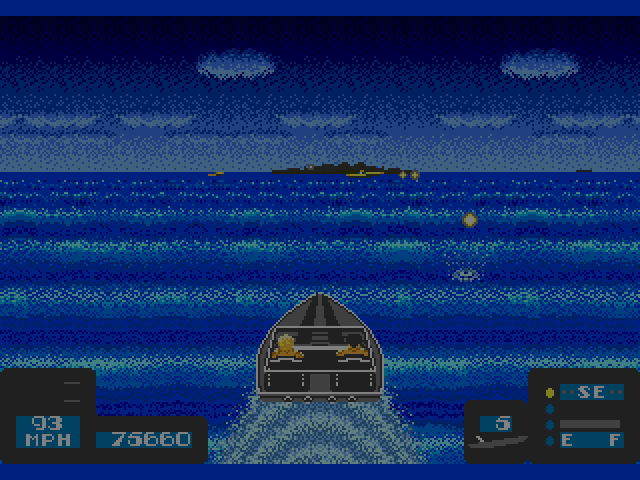
I love classic Genesis games like Sonic the Hedgehog and Streets of Rage II, but I also have a soft spot for the console’s schlocky B-games. These games – Rastan Saga II, Shadow Blasters, and Last Battle, among others – are playable, but clunky mechanics or bizarre design choices hold them back from true greatness. Instead, their appeal is a loose, ramshackle charm. They play like they’re on the brink of falling apart, and they’re worth experiencing because of that. They’re misfits, like Sega themselves, and I find that admirable.
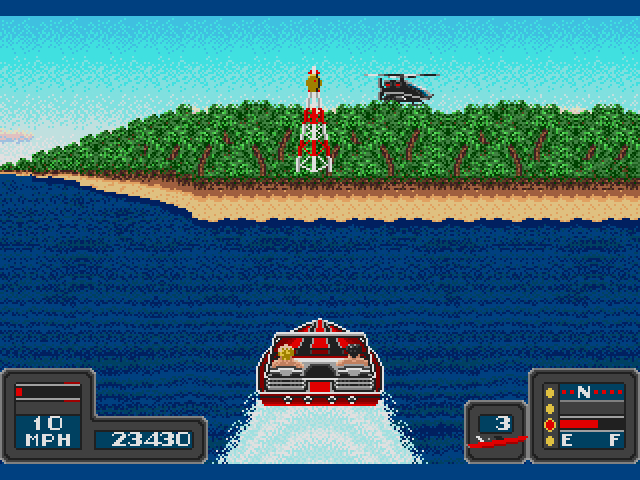
Bimini Run is a misfit, but not in the endearing sense. The game just can’t sustain its initial goofiness. It’s too polished to be truly terrible, too repetitive and boring to recommend playing beyond a couple levels. The name Bimini Run remains a hilarious executive decision, and Kenji O’Hara is forever, but the rest of this game is forgettable 16-bit mediocrity.
C-

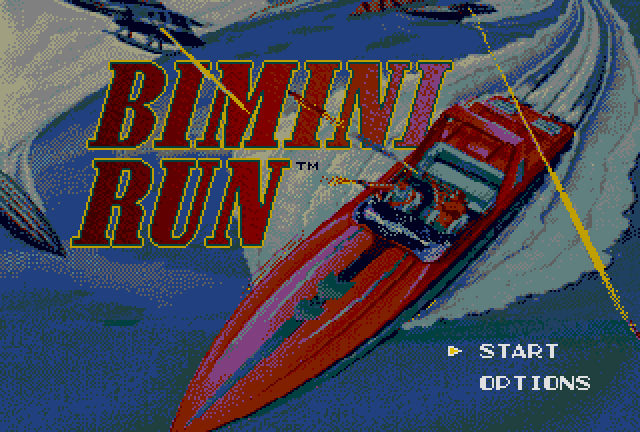
4 replies on “Bimini Run (Genesis, 1991)”
This game is also very current for me too, I only bought it last month for around six pounds for cart only, it is one of those games that you hear is pretty decent yet there are always other carts that you want more so this title got overlooked.
The way the missions are presented are pretty decent for such an early title and when the game starts your speedboat is very responsive.
I only gave the game about half an hour I had spare and managed to get to about the third level where you locate the island, the game avoids being very ‘samey’ by adding attacks from the air as well as chasing and firing at other speedboats whilst avoiding stationary boats and the likes, there is a lot going on at times.
The only part I found that some may find frustrating is when you have to shoot those towers on the edge of the islands as if you get too close you can ground yourself and it can be a pain nudging yourself back into the ocean.
I intend to go back to this game as the little time I had with it was enjoyable and I hope to enjoy the later levels that you mentioned in the review.
My initial perception of the game is a B-
The first three levels are by far the most engaging, but the game repeats whatever few ideas it has. Not a horrible way to spend 30-60 minutes, I suppose, but it wasn’t as bad-good as I wanted it to be.
I hope you enjoy it more than I did.
Was a good rental,
For the longest time i thought this game was some sort of Out Run spinoff… i guess i was wrong